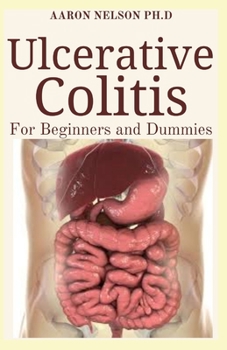Ulcerative Colitis for Beginners and Dummies: Astonishing Cookbook for Ulcerative Colitis
Ulcerative colitis is a chronic inflammatory disease affecting the colon, and its incidence is rising worldwide. The pathogenesis is multifactorial, involving genetic predisposition, epithelial barrier defects, dysregulated immune responses, and environmental factors. Patients with ulcerative colitis have mucosal inflammation starting in the rectum that can extend continuously to proximal segments of the colon. Ulcerative colitis usually presents with bloody diarrhoea and is diagnosed by colonoscopy and histological findings. The aim of management is to induce and then maintain remission, defined as resolution of symptoms and endoscopic healing. Treatments for ulcerative colitis include 5-aminosalicylic acid drugs, steroids, and immunosuppressant. Some patients can require colectomy for medically refractory disease or to treat colonic neoplasia. The therapeutic armamentarium for ulcerative colitis is expanding, and the number of drugs with new targets will rapidaly increase in coming years. Ulcerative colitis (UC) is one of the 2 major groups of chronic idiopathic inflammatory bowel disease. UC is a worldwide disorder that primarily affects young adults between the ages of 20 and 40 years, but the disease may present at any age. There appears to be a genetic susceptibility, which is only partly understood. Certain racial and ethnic groups tend to more prone to UC than other groups. The familial incidence of UC has been recognized for many years, but specific genes have yet to be identified.
Format:Paperback
Language:English
ISBN:B08YS62588
ISBN13:9798721270444
Release Date:January 1
Publisher:Independently Published
Length:66 Pages
Weight:0.19 lbs.
Dimensions:0.1" x 5.5" x 8.5"
Customer Reviews
0 rating





